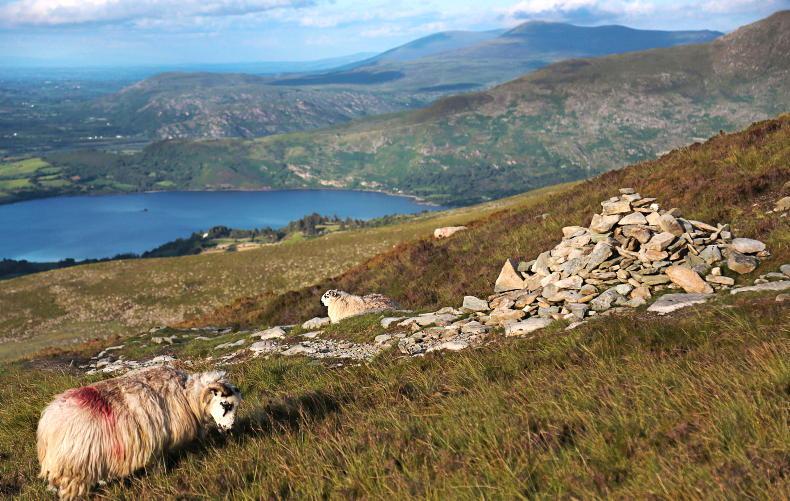The Department of Agriculture has been accused of including the 38 activities requiring consent (ARCs) on designated land in the conditionality for direct payments in the next CAP.
These ARCs require farmers on designated land to apply for permission from the Department of Housing to carry out certain farming activities such as removing trees, fencing or spreading fertiliser.
The Irish Natura and Hill Farmers Association (INHFA) described the move as “underhand” and an effort by the Department to avoid compensating farmers for the costs associated with designations.
The INHFA also claimed that the move would insulate the Government from further claims for payments related to future designations.
Under the EU’s biodiversity strategy, Ireland’s designated land area is proposed to increase from 13% to 30% of the country.
“These 38 ARCs are of importance to farmers with lands subject to regulation under the Birds and Habitats Directives which are designated Natura 2000 sites – Special Areas of Conservation (SAC) Special Protected Areas (SPA) and commonages,” said INHFA president Vincent Roddy.
“While in previous CAP programmes, farmers who breached any of these 38 ARCs could see their Pillar I payments impacted under cross compliance, this CAP programme is the first time they have been included as part of the terms and conditions,” he explained.
Logic
“Unfortunately, during the consultation process, this possibility was never discussed and the Department need to now explain their logic for this inclusion,” Roddy maintained.
“From our perspective, it appears that the Department, in conjunction with the National Parks and Wildlife Service (NPWS), have included them here in order to avoid paying farmers for the financial impact of these designations,” he claimed.
“In doing this, the Department is no doubt looking at the possibility of further designations required under the biodiversity strategy,” Roddy claimed. “It is also worth noting that this increase in the land designated will not be just confined to hills and commonages. The biodiversity strategy clearly outlines the need to protect critical habitats, carbon-rich soils and inland waterways,” he pointed out.
The INHFA claimed that there was a legal requirement on the State under the Habitats Directive to address the financial burden imposed as a result of designations.
“Simply including them as part of the Basic Income Support for Sustainability (BISS) conditions is not enough,” Roddy said.









SHARING OPTIONS